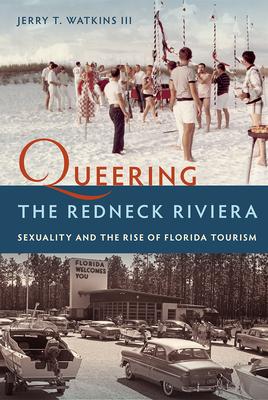Queering the Redneck Riviera recovers the forgotten and erased history of gay men and lesbians in North Florida, a region often overlooked in the story of the LGBTQ experience in the United States. Jerry Watkins reveals both the challenges these men and women faced in the years following World War II and the essential role they played in making the Emerald Coast a major tourist destination.
In a state dedicated to selling an image of itself as a "family-friendly" tropical paradise and in an era of increasing moral panic and repression, queer people were forced to negotiate their identities and their places in society. Watkins re-creates queer life during this period, drawing from sources including newspaper articles, advertising and public relations campaigns, oral history accounts, government documents, and interrogation transcripts from the state's Johns Committee.
He discovers that postwar improvements in transportation infrastructure made it easier for queer people to reach safe spaces to socialize. He uncovers stories of gay and lesbian beach parties, bars, and friendship networks that spanned the South. The book also includes rare photos from the Emma Jones Society, a Pensacola-based group that boldly hosted gatherings and conventions in public places.
Illuminating a community that boosted Florida's emerging tourist economy and helped establish a visible LGBTQ presence in the Sunshine State, Watkins offers new insights about the relationships between sexuality, capitalism, and conservative morality in the second half of the twentieth century.
